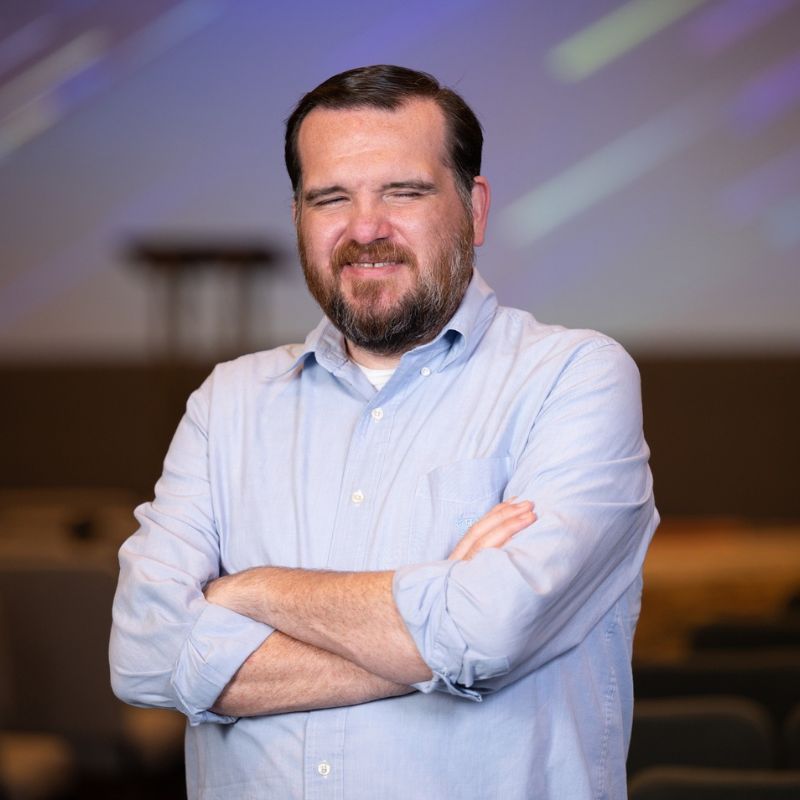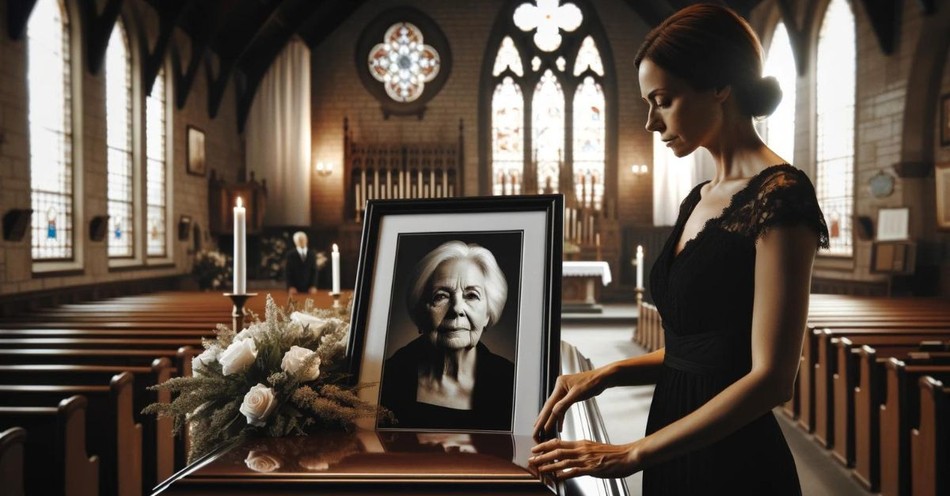What do you think people will say about you after you die? The way you want to be remembered, but what people actually say may be two different things. This is why the way we live matters. Several years ago, I led a group of twenty-one from my church to visit Cairo, Egypt. The week was packed with everything you might expect when visiting such a mysterious and enchanting land. We visited the pyramids and rode camels, but we also served in orphanages, prisons, and refugee camps. We sailed down the Nile River but also ministered at an international missions conference.
My favorite experience of that trip was the day we toured the Cairo museum. We, Americans, were amazed at real-life mummies (well, you know what I mean). Inside the museum was the famous King Tut’s exhibit. The wealth of that young pharaoh could not be overstated. I considered it a life-changing experience until later that afternoon when we found the old American missionaries cemetery in Cairo. We were there to find the final resting place of missionary William Borden, but what we discovered was eternal treasure far beyond the value of the pyramids or King Tut’s exhibit.
I was first introduced to the extraordinary life of William Borden many years ago in my teenage years. He was of the faith to me. William was born into a wealthy family in 1887. After his senior year in high school, his parents gave him, as a graduation gift, a trip around the world. As he kept encountering Muslims who had never heard the name of Christ, God burdened his heart to become a missionary. This angered his father, who wanted him to join the family business. Soon after his father’s untimely death, William informed his mother that he needed to fulfill God’s call on his life as a full-time missionary. He then traveled to Cairo, Egypt, to learn Arabic in order to reach more Muslims. Shortly after arriving in Cairo, he contracted spinal meningitis and died at the young age of twenty-five in 1913.
William died an immensely wealthy man, yet he left every penny of his estate to fund global missions. It was surreal to leave King Tut’s exhibit, also a wealthy man who died young. It was something to be able to see all of King Tut’s gold and treasures, yet when you come to the obscure gravesite of William Borden, there is no earthly treasure to be found. Why? Because William sent it on ahead. William believed the words of Jesus,
“Do not lay up for yourselves treasures on earth, where moth and rust destroy and where thieves break in and steal, but lay up for yourselves treasures in heaven, where neither moth nor rust destroys and where thieves do not break in and steal.” Matthew 6:19-20
Not only did William leave his wealth for missionary advancements, but upon news spreading around the world of a young man who was willing to pay such a high price to see souls saved, untold numbers of young men and women felt the call to take William’s place in reaching the unreached. Should you ever visit William Borden’s resting place in the old part of the city of Cairo, what you will find inscribed on his tombstone are these words, “Apart from faith in Christ, there is no explanation for such a life.”
Walking around that old cemetery felt like sacred ground to me. I read other headstones that inspired my faith. One missionary’s epitaph read, “For forty years, he carried the cross through the Nile valley.” Another missionary’s headstone read, “Hers was faith, hope, and love, but the greatest of hers was love.” That day marked my life as I was only twenty-six years old. Since then, I have paid closer attention to epitaphs that tell the story of the way people lived. I would like to share a few with you that have impacted me.
Nearly everyone knows the words to the iconic hymn, Amazing Grace, yet few know the man who wrote it or his story. Born in England in 1725, John Newton was a wicked man. He profited greatly from the slave trade industry and would go on to be the captain of a slave trade ship, ripping families apart in Africa to sail them across the ocean to be sold into slavery. Yet God had great plans for John Newton. After becoming a Christian, he left the evils of the slave trade and would go on to become a pastor for forty-three years until he died in 1807 at the age of eighty-two. Among his last words were, “I was a great sinner, but Christ is a great Savior.” Today, his epitaph still reads of a life well lived, “John Newton, clerk, once an infidel and libertine, a servant of slaves in Africa, was by the rich mercy of our Lord and Savior Jesus Christ, preserved, restored, pardoned, and appointed to preach the faith he had long labored to destroy.”
Another epitaph that has left a mark on my life is that of the revivalist Leonard Ravenhill. He was born in England in 1907 and died in America in 1994. Ravenhill wrote the classic book, “Why Revival Tarries.” It is one of my all-time favorite books. He was a strong voice for genuine repentance and authentic revival. So filled with passion for the Gospel was this man of God that even his tombstone echoes the conviction with which he lived, “Are the things you are living for worth Christ dying for?”
Billy and Ruth Graham were great gifts to the body of Christ. They were by no means perfect, but their lives mirrored the Gospel they proclaimed. Today, they are buried at the Billy Graham Library in Charlotte, North Carolina. I will never forget the first time I visited the library and saw their headstones. Ruth, who died in 2007, had specific requests for her epitaph. She once drove through roadwork and saw a sign that read, “End of construction. Thank you for your patience.” She thought to herself, how does that describe life? Ruth’s epitaph was insightful, but Billy’s was profoundly simple, “Preacher of the Gospel of the Lord Jesus Christ.” Being a preacher of the Gospel is what defined Billy’s life, not his numerous accomplishments or accolades. A reporter once asked Billy if he would consider running for the presidency of the United States. His answer was that he would have to take a step down from ministry to become president. That makes me proud of him and the gospel he so faithfully preached.
I can remember watching on television when Hollywood gave Billy Graham his own star on the Walk of Fame. He had previously turned down the offer, yet in his acceptance speech, he shared what changed his mind. I remember him saying that long after Billy Graham has left this world, perhaps a young boy or girl will ask their parents, “Who was Billy Graham?” Perhaps their parents will say, “He was a preacher of the Gospel.” Perhaps the boy or girl will ask, “What is the Gospel?” And that may lead them to Christ. He and Ruth lived faithful lives, always with eternity in view.
It was missionary C.T. Studd, who died in 1931, who said, “Only one life, 'twill soon be past, Only what's done for Christ will last.” The men and women mentioned in this article understood this. Though they were each sinful and deeply flawed, they were also saved and redeemed. So it is with you and I if we are born again. This means each of us has the opportunity to live well and be pleasing to God. In the many years of being a pastor, I have preached numerous funerals. I have never had a family ask me to share their loved one’s income level, assets, or what their retirement grew to. It is because those things do not matter in the end. Jesus taught, “...for one's life does not consist in the abundance of his possessions” (Luke 12:15). The question has been asked, “Why are the streets of Heaven paved with gold?” I once heard a wise pastor answer that it is because “What is the most valuable thing on earth is the least valuable thing in Heaven.” What a perspective!
While there is not a gravesite for the Apostle Paul, he still left us an epitaph for the ages. “I have fought the good fight, I have finished the race, I have kept the faith” (2 Timothy 4:7). What will your life be known for?
Photo Credit: Image created using AI technology

Chad’s pastoral career has not been defined by blindness. Rather, it is his clear, biblical teaching that continues to grow an audience. He has traveled through forty nations, training pastors and strengthening churches.
Today, Chad teaches people to trust a God they cannot see. His days are filled with the things he loves most: leading, speaking, writing, and of course, coffee! He is a spiritual content creator. By God’s grace, he is emerging as a trusted spiritual voice in people’s lives. Chad may have blindness, but blindness does not have him.



